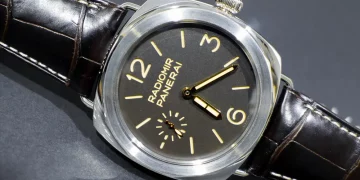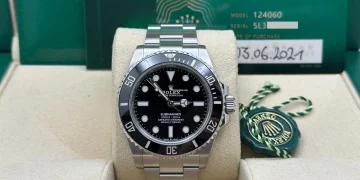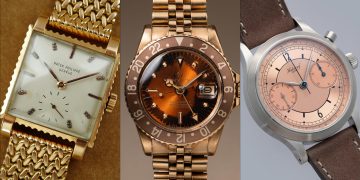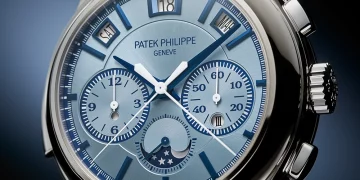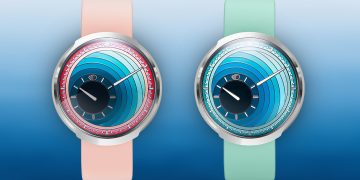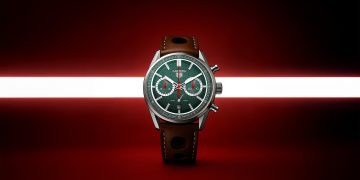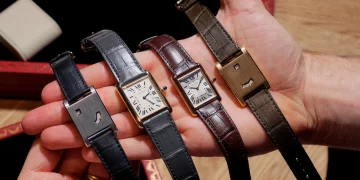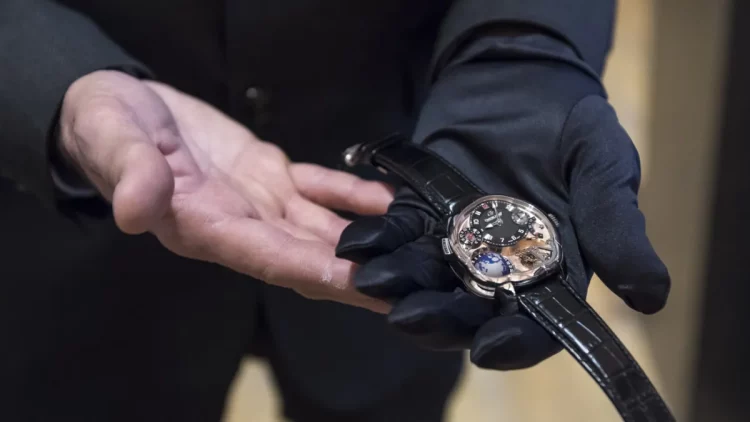Introduction
Mechanical watches are marvels of engineering, revered not only for their timekeeping precision but also for their artistry and craftsmanship. Unlike their quartz counterparts, mechanical watches rely on intricate movements powered by gears, springs, and escapements. To ensure that these timepieces continue to function correctly, they require periodic maintenance. However, many watch owners may not fully understand the critical importance of this maintenance or the risks associated with neglecting it.
Regular maintenance is essential not just for the smooth functioning of the watch but for preserving its value, aesthetics, and longevity. This article will delve into the reasons why regular maintenance is crucial for mechanical watches, the types of services involved, the potential consequences of neglect, and how proper care can extend the life of your prized timepiece.
1. Understanding the Mechanics of a Mechanical Watch
1.1 The Inner Workings of Mechanical Watches
At the heart of every mechanical watch is a movement – a collection of gears, springs, and escapements that work in harmony to track and display the passage of time. Unlike quartz watches that use a battery to power a digital display, mechanical watches derive energy from a wound spring that gradually releases its energy through a series of gears. This is often referred to as a “manual” or “automatic” movement, depending on whether the watch requires winding by hand or is powered by the wearer’s wrist movement.
- The Mainspring: The mainspring is the central component of a mechanical watch, storing energy and gradually releasing it to power the movement. Over time, the mainspring’s elasticity can degrade, leading to inaccuracies in timekeeping.
- Escapement and Balance Wheel: These components regulate the release of energy and ensure consistent timekeeping. The escapement and balance wheel need to be properly lubricated and maintained to function at optimal efficiency.
- Lubrication and Friction: The mechanical movement of the watch relies heavily on lubrication to minimize friction. Over time, this lubricant can dry out or break down, causing components to wear prematurely and affecting the watch’s precision.
1.2 Why Maintenance Is Necessary for Mechanical Watches
Due to the complexity and delicate nature of a mechanical watch, regular maintenance is needed to keep it running smoothly. A mechanical watch may show signs of wear after only a few years of use without proper care. While the occasional cleaning and lubrication may seem like minor tasks, these procedures are essential in preventing internal damage that can impair the watch’s function.
2. The Types of Maintenance Services for Mechanical Watches
2.1 Basic Maintenance: Cleaning and Lubrication
At the most basic level, mechanical watches require regular cleaning and lubrication to ensure that their intricate movements continue to work without friction or wear. Here’s a breakdown of the primary tasks involved in basic maintenance:
- Cleaning: Dirt, dust, and oils from the skin can build up over time and interfere with the movement of the gears. Cleaning is necessary to remove debris that could cause malfunction or premature wear of internal components.
- Lubrication: Every mechanical watch has various moving parts that require lubrication to reduce friction. As the lubricant dries out or breaks down, friction increases, which can lead to the breakdown of components and loss of timekeeping accuracy.
2.2 Advanced Maintenance: Overhaul and Parts Replacement
More intensive maintenance is needed when a watch is in use for several years, especially when the timepiece starts to show signs of wear, such as losing time or experiencing mechanical difficulties.
- Full Movement Overhaul: This process involves disassembling the entire watch to its individual parts, cleaning and inspecting them, lubricating the components, and reassembling the movement. Full overhauls should be performed every 3–5 years, depending on the brand and usage, to ensure that all internal parts remain in good condition.
- Parts Replacement: Mechanical watches may need parts replaced over time, especially if certain components become worn or damaged. Common parts that may need replacing include the mainspring, balance wheel, and escapement.
2.3 Cosmetic Maintenance: Case, Dial, and Crystal Care
In addition to internal servicing, the external appearance of a watch should also be maintained. Regular cleaning of the watch’s case, dial, and crystal helps preserve its aesthetic appeal.
- Polishing: The case may become scratched over time, and polishing it can restore its original appearance.
- Crystal Replacement: The crystal, or glass, of a mechanical watch may develop scratches or cracks. Replacing or polishing the crystal ensures clarity and protects the dial from damage.
- Water Resistance Check: The seals of the watch must be regularly checked to maintain water resistance. A compromised seal can lead to water damage, which is one of the most harmful issues for a mechanical watch.
3. The Risks of Neglecting Regular Maintenance
3.1 Accuracy Loss
One of the most significant risks of neglecting regular maintenance is the loss of timekeeping accuracy. A mechanical watch relies on the movement of its gears and components, and any friction or wear can affect the precision of the watch. Over time, this will lead to inaccurate timekeeping, which can be frustrating and cause the watch to lose its value as a reliable tool.
- Example: A worn-out escapement or balance spring could result in the watch running fast or slow, making it unreliable.
3.2 Increased Wear and Tear
Without proper maintenance, the individual components of a mechanical watch are more likely to experience wear and tear. As internal parts degrade, the risk of breakdowns or malfunction increases.
- Example: If the lubrication on the gears dries up, the parts may start grinding against one another, resulting in scratched or damaged components. Eventually, this could require costly repairs or a full movement replacement.
3.3 Reduced Lifespan of the Watch
Mechanical watches are designed to last for generations, with proper care and maintenance ensuring their longevity. Neglecting maintenance can shorten the lifespan of the watch, especially if internal components are not regularly cleaned, lubricated, or replaced. In extreme cases, prolonged neglect can render the watch unusable, requiring expensive repairs or total replacement.

4. The Financial Impact of Regular Maintenance
4.1 The Cost of Maintenance vs. Repair
While regular maintenance may seem like an additional expense, it is significantly more cost-effective than dealing with major repairs that could result from neglecting service. An annual maintenance service may cost a few hundred dollars, but a major repair or movement replacement could cost thousands.
- Preventive Care: By keeping up with regular servicing, you prevent the need for expensive repairs that might arise from significant internal damage.
4.2 Maintaining the Value of a Luxury Watch
For collectors and enthusiasts, maintaining a mechanical watch is also important for preserving its value. A well-maintained watch retains its resale value better than one that has been poorly cared for. Watches from brands like Rolex and Patek Philippe can fetch a premium in the secondary market if they are in excellent condition.
- Documentation: Regular maintenance also provides documentation that can verify the watch’s authenticity and service history, adding to its appeal for potential buyers.
5. When Should You Service Your Mechanical Watch?
5.1 Recommended Service Intervals
While every mechanical watch has unique service needs depending on its brand and usage, it is generally recommended to have your timepiece serviced every 3–5 years. However, certain conditions might warrant more frequent servicing:
- Daily Wear: If the watch is worn daily and exposed to various environmental factors, such as moisture, dust, or shock, more frequent service may be needed.
- Signs of Inaccuracy: If the watch starts losing or gaining time, or if it shows signs of irregular functioning (e.g., the second hand stutters or stops), it is time to have it serviced.
5.2 Choosing a Reputable Watchmaker
When it comes to servicing a mechanical watch, it is crucial to choose an experienced and reputable watchmaker. Authorized service centers for specific brands are often the best choice, as they are equipped with the expertise and parts necessary for the job. However, independent specialists can also provide excellent service, often at more competitive prices.
6. Conclusion
In conclusion, regular maintenance is critical to the long-term health and performance of mechanical watches. This routine care ensures that the watch continues to function accurately, preserves its longevity, and retains its aesthetic appeal. Whether you own a luxury timepiece or a vintage model, investing in regular servicing will protect the intricate craftsmanship and value of your watch. With proper care, a mechanical watch can last for generations, continuing to serve as both a reliable timekeeping tool and a symbol of artistry and luxury.







